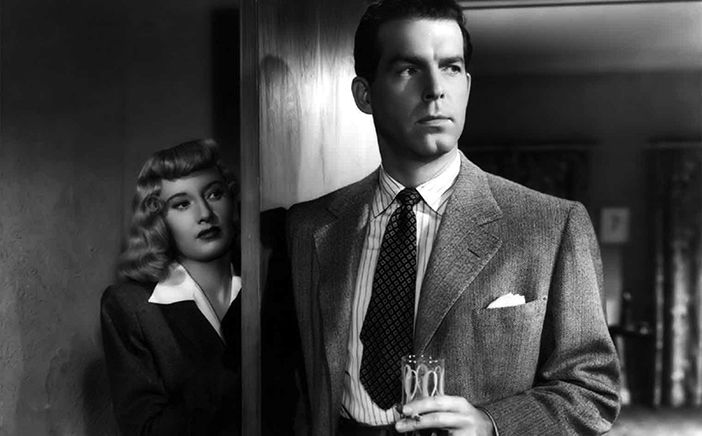ne of the best things about the Turner Classic Movie channel is that it afforded me the opportunity to share my passion for old movies with my kids.
Now that my kids are long past the puppy stage, we can still get together every now and then in front of the television, tune in to TCM and lose ourselves in a movie from the past. We can also swap dialogue from some of these classic films around the dinner table in a kind of insider’s shorthand.
My work is still not complete, as I cannot get my daughter to consider what a great movie “Casablanca” is, but I’m holding out hope she will eventually come around.
OK, it may not be the stuff of epic relationship bonding between father and child found in “To Kill A Mockingbird,” and Western Civilization does not hinge on me passing on an affection for the Marx Brothers — or does it?
Actually it doesn’t, but it does give me a link not only to my own kids but to my dad as well. In a moment of weakness a long time ago, our dad confessed that while he was in high school, the newest Marx Brothers movie came out and he and his best friend (somebody who eventually became a priest), ditched school several days in a row to watch it in a downtown Los Angeles movie palace.
Our straight-laced dad, the guy who never ever missed work or a familiar obligation, just couldn’t get enough of the Marx Brothers. He passed that on to me, and now, I have kept this “legacy” going.
Recently I was able to share another part of this passion for older movies with two of my children and the Turner Classic Movie channel facilitated this as well.
During the summer, TCM presents some of its more iconic library offerings on big screens in modern day movie theaters. It is a way to see these films as they were meant to be seen and just a few weeks ago we took advantage of this offer and saw “Double Indemnity,” the 1944 film noir masterpiece by director Billy Wilder starring Barbara Stanwyck and Fred MacMurray.
We got our popcorn, waited for the lights to dim and then the movie began. The first thing my kids noticed was the orientation of the 35mm frame. It was square, rather than the elongated wide angle I’ve become accustomed to and which my children have only ever known.
The next thing we all took note of was what we didn’t hear. There were long moments of silence sandwiched between dialogue that, although dated in many respects, still got laughs when intended.
Even when it meant to be serious, like Fred MacMurray’s voice over at the beginning noting how he dropped by one of those big homes in Glendale that must have cost $30,000, it retained a charm all its own.
The quiet parts of the movie were oftentimes interrupted by the cacophonous rumblings from the soundtracks of other movies being shown in other theaters in the movie-plex we were in. It seems movies today cannot have any prolonged moments of quiet. Not so in 1944.
Yes, it is a little old fashioned, but it is also a little timeless, with themes of adultery, murder and ultimate justice of biblical proportions. “Double Indemnity” is a story old as the Bible, too, and even has an avenging angel of sorts embodied by Edward G. Robinson’s insurance fraud investigator.
This character’s “little man” helps him sniff out a fraudulent insurance claim within 100 yards and he is a character who demands that the Earth be put back on its moral axis every time an insurance cheat tips it out of balance. Robinson’s character is a film noir version of Michael the Archangel, delivering tough lough to recalcitrants.
Though grateful for TCM for preserving films and giving new generations the opportunity to discover them, watching a film like “Double Indemnity” in its natural habitat, accentuates all the shortcomings of television.
Watching a movie in a movie theater requires you sit in the dark. No one was talking in the other room, filling the dishwasher or talking on the phone … well, almost no one was talking on their cell phone. There weren’t a hundred different distractions like there are when watching television at home.
Try as it might, television just cannot deliver the same experience. Technology will continue to impact the way we receive entertainment and as electronic advancements pulse forward (or backward, as the case may be) and when we wind up wearing devices on our heads that will envelope us in a sensory experience that puts us in the midst of the story, something unique will be lost.
Watching a film with total strangers in a darkened arena magnifies the laughter and intensifies the surprise in any given movie.
At the risk of sounding like an aging hipster sitting at an outdoor coffee shop pining for the next Jean Luc Godard film festival, watching movies up on a movie screen rather than on a television set does kind of make it feel like art.
The TCM program continues next month with showings of Alfred Hitchcock’s “Psycho.” My daughter can’t wait. I’m thinking of all the money I’ll save on my future DWP bills when somebody in our house stops taking showers.

